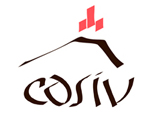Publications
The journal
COSIV launched a new publication in 2012 entitled and dedicated to… guess what? Statistics in Volcanology. The COSIV was established in 2007 to promote advancement in the statistical analysis of volcanological data, especially with regard to improved forecasts of volcanic activity and its potential effects. Statistics in Volcanology is the open-access, peer-reviewed journal of the COSIV. The aim of Statistics in Volcanology is to provide a forum for volcanologists and statisticians to share experience and expertise related to development and application of innovative analytical methods. Through this forum, we hope to better our understanding of volcanic events and processes, to the benefit of all people who live with active volcanoes.
Statistics in Volcanology is dedicated to improving best practices in the analysis of all types of data related to volcanoes and volcanic processes. Review articles published in the journal will summarize major developments in the field, written especially to make these developments more readily accessible to the volcanological community. Research articles will describe new statistical methods and their application in volcanology, case studies, and related topics. The Editors particularly encourage short contributions, which we refer to as “How-to” articles, that succinctly describe a specific procedure, method, or technique used in the analysis of volcanological data. Each How-to article might include a brief overview to give volcanological context, a procedure (which would be the bulk of the article and might often include step by step instructions and/or pseudocode), a worked example, and a discussion of potential pitfalls. The idea is that a graduate student or scientist might pick up the article and use the procedure to quickly analyze their own data. Submission of supplementary data sets, computer code, and related materials will also be encouraged.
The journal will be completely open access. This means that authors will retain copyright to their work, publication will be at no cost to authors, and articles that complete the peer review process will be immediately and freely available to anyone as a PDF through the journal website. All articles will undergo a peer-review process and, upon completion of this process, will be assigned a unique doi number. Because the journal will be hosted by the Berkeley Electronic Press and the University of South Florida Libraries, long term archiving is assured. Berkeley Electronic Press also works with Google Scholar to rapidly index articles in web search engines. All this means that Statistics in Volcanology can help the community use the best possible statistical methods in the most timely way.
The founding editor of the journal is past COSIV leader Chuck Connor. The full editorial board includes many other COSIV members.
Watch this space for additional developments and please consider submitting your appropriate and excellent research to Statistics in Volcanology in 2013 and beyond!
The book
The international workshop on ‘Statistics in Volcanology’ led directly to the publication of the first research-level textbook on the subject and the first volume of the IAVCEI book series.
Statistics in Volcanology is a comprehensive guide to modern statistical methods applied in volcanology written by today’s leading authorities. The volume aims to show how the statistical analysis of complex volcanological data sets, including time series, and numerical models of volcanic processes can improve our ability to forecast volcanic eruptions. Specific topics include the use of expert elicitation and Bayesian methods in eruption forecasting, statistical models of temporal and spatial patterns of volcanic activity, analysis of time series in volcano seismology, probabilistic hazard assessment, and assessment of numerical models using robust statistical methods. Also provided are comprehensive overviews of volcanic phenomena, and a full glossary of both volcanological and statistical terms.

